If you’re going camping, the last thing you want to see upon waking up is a bear sniffing around your campsite. Know how to keep bears away from campsite with the comprehensive guide below.
RELATED: Bearly Alive – How To Survive A Bear Attack
How to Keep Bears Away from Campsite | What You Need to Know
1. Know the Different Types of Bears
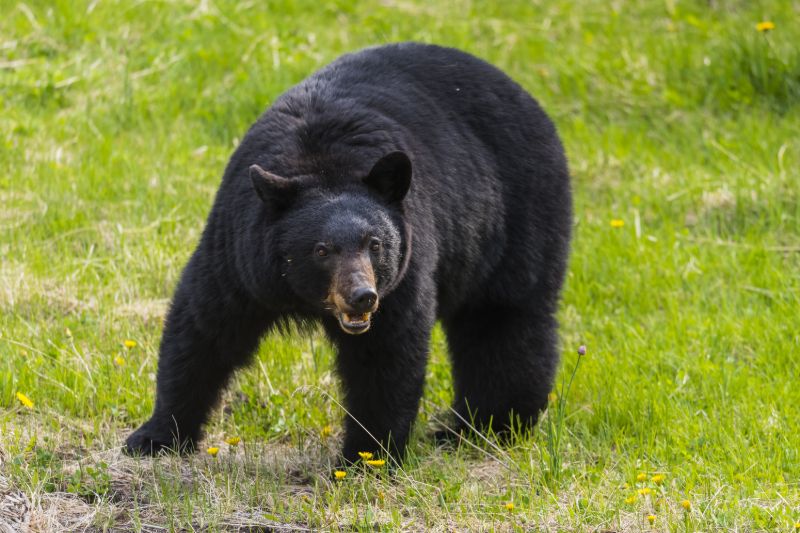
First and foremost, it is extremely important to get to know the different types of bears you might see on your hike. This should help you understand the differences in their behaviors, and therefore, tell you what to do in case of an encounter.
In North America, there are three different species of bears: brown-grizzly bears, black bears, and polar bears. Unless you’re planning on going camping in the Arctic North, you’re unlikely to encounter a polar bear, so let’s focus on the first two.
Black Bears
These are the smallest and most common as they can be found in all 50 states. Despite their fierce look, black bears are generally shy and evasive. They live in the woods where food and shelter are most abundant.
Brown-grizzly Bears
On the other hand, the brown-grizzlies are another story altogether. These bears can reach a shoulder height of up to four and a half feet when they are standing on all fours.
They are known for being much more powerful and aggressive than the gentler black bear. They are often seen in the forests of Western Canada, Northwestern United States, and Alaska.
2. Understand Their Behavior
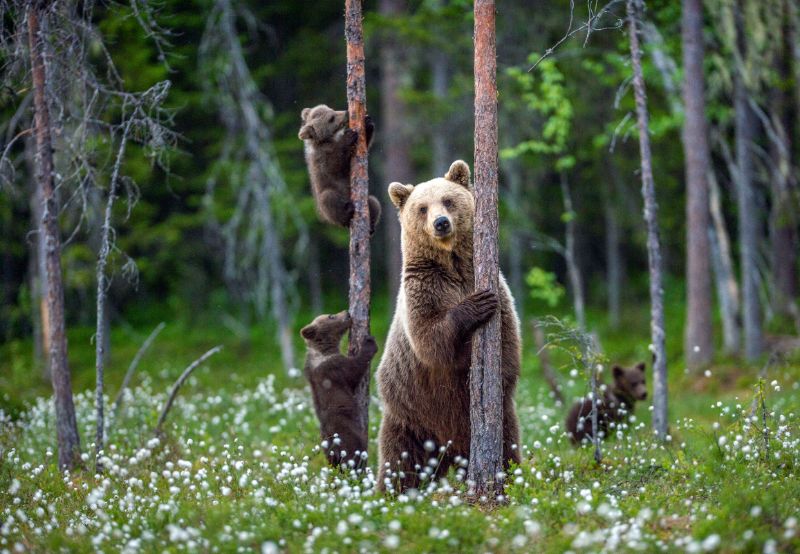
Understanding basic bear behavior is key to avoiding dangerous bear encounters altogether. Before going on your next camping trip, make sure to load up on as much of these pieces of information as you can.
First, contrary to popular belief, bears do not intentionally hunt people. In fact, they try to avoid interactions with humans as much as possible. On the rare occasions that they do meet people, it is often because the bear was actually looking for food.
In general, these giants are not aggressive by nature. Keep in mind, however, that they are wild animals. As such, they can be quite unpredictable and will react on instinct. They also have a natural curiosity about them.
Bears standing on their hind legs do not indicate aggression. Instead, it simply implies that the bear is trying to get a better look at what is happening around it. Their curiosity may also lead them to pay attention to unfamiliar scents, follow them, and investigate.
Avoid having an encounter with a curious bear that is following a scent by making your presence known. Furthermore, make sure not to surprise them as this might trigger their defensive instincts and cause them to attack.
Additionally, black bears will typically be seen on high branches as they are great at climbing trees. Brown-grizzlies, on the other hand, are not. They do, however, make up for this with their more aggressive attitude.
Whereas the former is likely to run away upon meeting a human, the latter is more likely to defend itself. Make sure to keep these in mind when deciding what to do should you need to deal with the worst-case scenario.
3. Plan Your Campsite
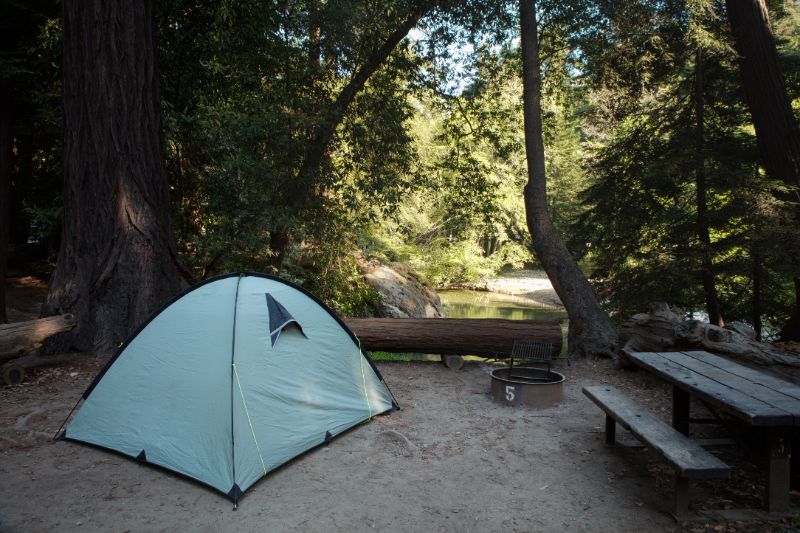
Make sure to choose a campsite that is uninteresting to bears. Before setting up camp, check out the surrounding area for scratched trees, tracks, or bear poop. Discarded food is also an indicator that you should pitch your tent elsewhere.
Bringing a dog on a camping trip in the bear country also isn’t advised. If a bear happens upon your campsite, a dog will most likely start barking, which could provoke the bear and initiate an attack.
A strategy some campers use to keep bears away from their campsites is called the “Bear-Muda Strategy.” This essentially involves forming a triangle around the campsite by pitching the tent in one corner and using the other two corners for cooking meals and storing food.
In this strategy, it is also crucial to leave about 100 yards between corners and to set up the tent upwind from the food storage and cooking areas.
RELATED: Camping Gears | Camp Like A Genius With These 25 Additions
4. Keep Smells Away from the Campsite
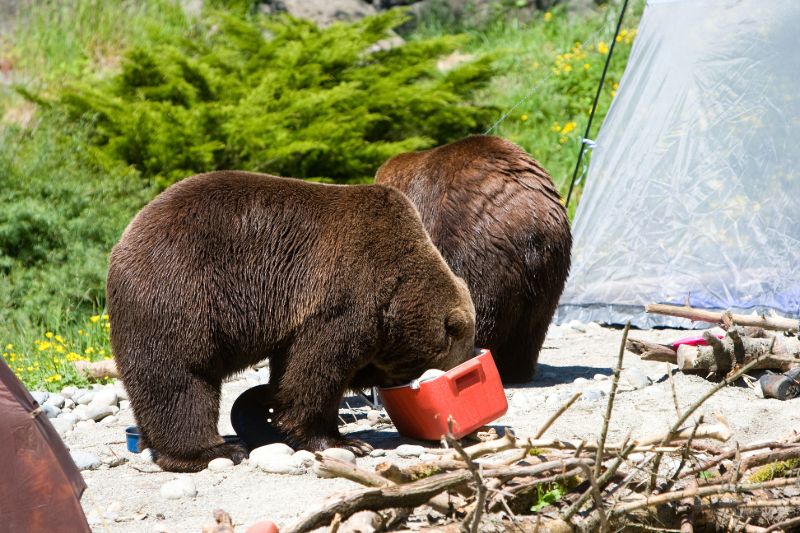
Bears have some of the best scent receptors among all terrestrial mammals. Because of this, even the slightest scent of food will be enough to get their attention and drive them towards your campsite. Make sure to keep these scents far away from your tent.
The list of things with scents attractive to bears is not limited to food. They also include:
Human or pet food
Cooking utensils
Cooking oil
Canned beverages
Garbage
Lotions and cosmetics
Toothpaste and soap
Insect repellants
Of course, most of the items on the list are camping essentials. The best you can do is to keep them away from bears, or if you’re unable to, then keep them away from your tent.
For those going car camping, make sure to pack everything neatly into your car at the end of the day. Roll your car’s windows all the way up as well.
You can also use a bear hang, a smell-free and waterproof bear canister contraption hanging about 10 feet from the ground and about 4 feet from the trunk of trees. You can store your things in this bear canister and leave it hanging so bears will not be able to reach it should they happen upon your campsite.
Make sure to wash your utensils and cooking gear immediately after using them as well. This lessens the likelihood of the scents lingering in the air or getting caught in the wind.
Finally, change your clothes after cooking. Keep a separate set of clothes for sleeping and for cooking, and make sure your sleeping clothes are far away from your cooking area. This should help ensure that bears don’t go sniffing around inside your tent.
5. Prepare for an Encounter
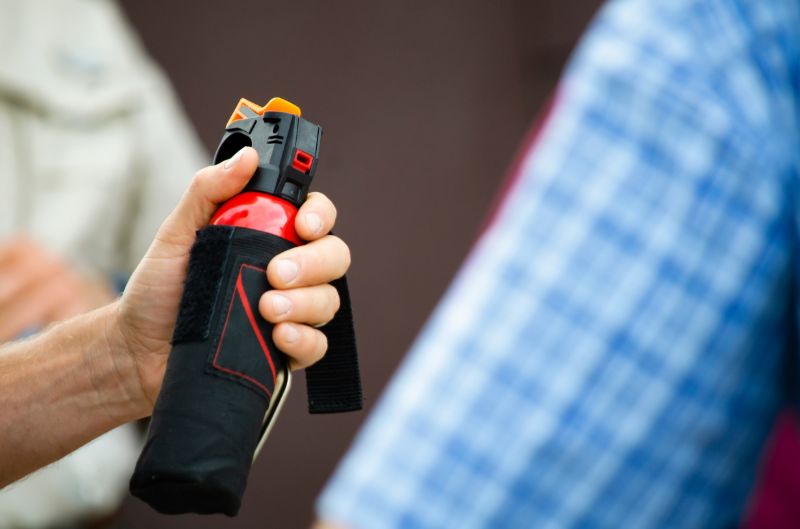
The best way to prepare for an encounter is to try to avoid them altogether. The best way to do this, in turn, is to make your presence known.
Make noise. Remember, bears generally try to avoid humans as much as possible. Making your presence known by ringing bells, singing, talking loudly, and the like will help ensure that they stay far away from you.
If you happen to see a bear, do not approach it. Getting too close to bears, especially mother bears with their cubs, can be extremely dangerous.
Finally, if a bear encounter is completely unavoidable, make sure to bring some bear spray. This should be your last resort, but if a bear is about to attack you, do not hesitate to use it. Keep a can of bear spray with you at all times, even when you’re sleeping.
Done going through our guide on how to keep bears away from campsite? Prepare for a bear encounter and learn how to survive a bear attack by checking out this video courtesy of Bright Side:
If you’re going camping in bear country, it’s best to be prepared for a bear encounter or better yet, to know how to avoid them altogether. Follow our tips on how to keep bears away from campsite so you can sleep soundly in your tent at night.
Note: There is a poll embedded within this post, please visit the site to participate in this post’s poll.
Do you have other questions about how to keep bears away from campsite? Ask us in the comments section below!
Up Next:
What NOT To Do In Bear Country USA This Winter
25 Top Camping Tips I Learned From My Old Man
10 Common Household Items With Survival Uses
Calling all preppers, craftsmen, bushmasters, outdoorsmen, and all-around skilled people, Survival Life needs YOU! Click here if you want to write for us.
Don’t forget to stay connected with us on Facebook, Twitter, Pinterest, and Instagram!
Read more: survivallife.com
